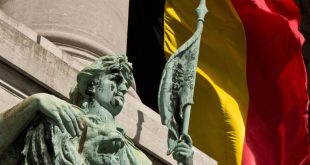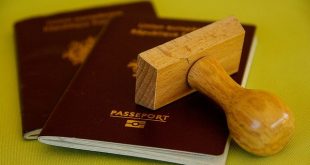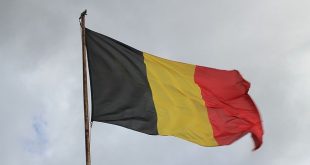Belgium is a political and cultural hub in Western Europe. It’s a country with multiple language and borders with 4 other nations, renowned for being open and welcoming. Belgium is also famous for its chocolates, comics, museums to name just a few, while it’s also a place where you can receive cutting-edge education. A master’s degree in Belgium will certainly open the way for you to gain an international experience and help you get the skills you need to succeed in the global workplace. Here’s our guide on masters programs in Belgium. Learn about the types of master’s degree, how to enroll in a program, the cost, where to study, and other essential information.
Table of Contents
Is Belgium good for Masters?
There are several reasons why Belgium is an attractive masters study destination. The country offers high quality education at an affordable cost associated with a reasonable cost of living. Belgium is home to several top-ranked universities, 7 of them being in the 400 best globally.
Located at the heart of Europe, Belgium and especially its capital city, Brussels, has a vibrant international atmosphere. Hosting several global organizations, Belgium has its perks for students, when it comes to educational and professional networking opportunities.
Add to that the fact that the country has 3 official languages while you also have several programs taught in English. In other words, in Belgium, you can easily study for your masters while perfecting your French, German or Dutch skills at the same time. Moreover, there is the public transportation system that is so efficient you can get to Paris, London or Amsterdam in less than 2 hours by train.
And last but not least, Belgium is an international trade hub. In this regard, Belgian universities has premiere MBA offerings for business students. Whether you wish to pursue a MBA or an executive MBA, you’re sure to receive a training in a diverse environment, with an international career perspective to focus on.
Find out more in our guide on why you should study in Belgium.
Types of masters courses in Belgium
In Belgium, there are 2 types of master’s degree courses. The difference between the 2 depends on the duration and the number of ECTS credits needed to complete the program.
Moreover, both types of courses include traditional coursework and tutorials. These come along with other practical modules such as projects, site visits, group work as well as placements.
Furthermore, both master’s program include a dissertation that will count for a large proportion of the master’s credit number. Last and not least, both types of courses give students access to doctoral studies.
Initial master’s in Belgium
This master’s degree lasts for 2 years and requires 120 ECTS to complete. It’s the program that looks the most like the classic masters you’ll find everywhere else.
Advanced masters in Belgium
To earn an advanced master’s degree in Belgium, you need to complete first your initial masters or equivalent, then get one more year of training in a specific area. Usually, you must complete at least an additional 60 ECTS credits. Moreover, some advanced masters in Belgium require a joint participation in different higher education institutions.
Master’s requirements and application
The main entry requirement to apply for a master’s program in Belgium is a bachelor’s degree or an equivalent. For advanced master’s, students must have initially completed at least a four-year university program or the equivalent of 240 ECTS. Most have already obtained a traditional master’s degree. Admission to some subjects may also require a work experience.
Language requirements
If the language of instruction for your master is not your first language, you might need to provide a proof of proficiency. You can do so either through a language certificate or by showing you have studied previously in that language.
Therefore, here are the certificates you need to provide if you’re going to study your master in:
- French: DELF (Diploma of French Language Studies) or DALF (Advanced Diploma in French Language)
- Dutch: State Examination of Dutch as a Second Language (Staatsexamen Nederlands als tweede) or Certificate of Dutch as a Foreign Language (Certificaat Nederlands als Vreemde Taal) with B2 level
- German: TestDaF (TDN 4), Goethe-Zertifikat (C1) or DSH (German Language Examination for University Admission of Foreign Study Applicants)
- English: IELTS (with a score 6,5 – 7,0), TOEFL (with 80 – 100 points for iBT) or CAE (with C1 Advanced)
Read here how you can study in Belgium in English.
Application process
To apply to masters programs in Belgium, you usually go through the same process you’ll go through in other countries. This means you’ll have to prepare the following documents and submit them through the website of your university of choice:
- Filled application form
- Copy of your transcripts and qualifications
- Certified translations of your documents (in French, Dutch or German) depending on what the university requires
- Academic CV
- References and/or recommendation letters
- Letter of motivation
- Proof of proficiency in the program’s language of instruction
Learn also how to apply to Belgian universities.
Application deadlines and academic year
Deadlines to apply to masters programs in Belgium usually fall in February or March. This is if you plan to start your studies in September of the same year. Moreover, the academic calendar runs from September to July/August of the following year.
Non-European international students are to acquire a residence permit or a student visa in order to study in Belgium.
Read here our guide on how to get a student visa in Belgium.
Masters in Belgium cost
When it comes to masters fees in Belgium, Flemish universities charge a maximum tuition fee of €979.60 per year to Belgian and EU/EEA students. International students, on the other hand, must pay between €979.60 and €8,000 per year.
French universities in Belgium, on the other hand will charge up to €835 per year to Belgian and EU/EEA students. International students will pay up to €4,175 per year for their master’s degree.
Of course, it will cost you higher fees to earn some masters such as LLM (Masters of Law), MBA / EMBA, and medicine/dentistry-related programs. As for the fees, a masters student in Belgium must pay:
- an application fee between €50 and €100
- if they’re a non-European student, a medical insurance fee of €100-€150
- a third-party liability insurance of €15
Furthermore, international students can check for funding for their postgraduate studies. Some of them are in our guide on the best scholarships in Belgium for international students.
You also have the possibility to work and study in Belgium to waive off a part of your living and study cost in Belgium.
Public universities in Belgium for masters
The higher education system in Belgium follows the Bologna process with the 3 consecutive cycles: bachelor-master-doctorate. When it comes to masters, you can usually study at universities, university colleges, Hautes Écoles/Hogescholen, Art colleges, registered higher education institutes as well as foreign institutions in Belgium.
Masters at public or private universities in Belgium are more research-focused, while those in university college masters are more professionally-driven. Therefore, only universities provide doctorate programs.
Hautes Écoles or Hogescholen work on the same principle as French Hautes Écoles. There are 40 of such institutions in Belgium and their postgraduate training tend to be more professional and labor-market focused.
Art colleges, as their name states, offer study programs in arts, in the broader meaning of the word. And registered higher institutes specialize in degrees or programs in a foreign language.
Find out here our list of the best universities in Belgium.
Can I get a job in Belgium after masters?
The answer is yes, under the condition that you take advantage of everything the country offers in terms of visa/residence permit and career preparation services.
Orientation year residence permit
Belgium has in recent years introduced the orientation year residence permit, allowing international graduates from its universities to stay up to 1 year in the country. This orientation year is to be used to find work or start a company in Belgium. And it is available to all non-European international students who have earned their bachelor’s, masters or PhD in Belgium.
During this year, they have unlimited access to the Belgian job market. And once they find a job, they need to exchange their orientation residence permit to a single document combining residence and work permit.
University career services
One very interesting feature of universities in Belgium is that many universities have excellent career services that prepare students for the job market. Taking advantage of these services will help you build a professional network and increase your chance to secure a distinguished position at an international company.
Some institutions, such as the University of Antwerp also hosts regular job fairs and events, helping students to get in touch with potential employers. During and after your study, the career center is accessible and helps you find internships, vacancies and any career-related event.
To sum up, you get all the help you need to get your career off to a good start after you earned your masters in Belgium!
This post is also available in fr_FR.




 Aljawaz Your guide to study abroad
Aljawaz Your guide to study abroad










